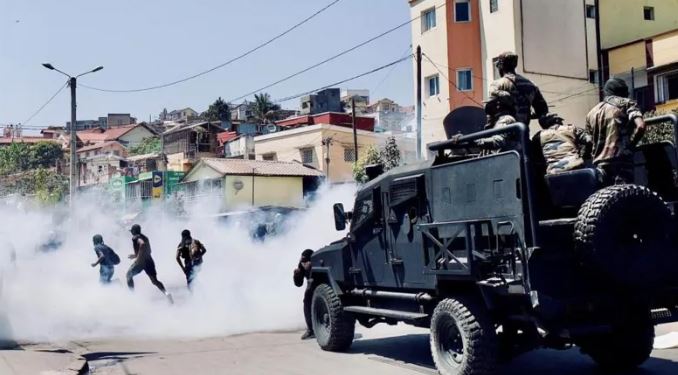Madagascar: Generation Z challenges Rajoelina amid nationwide unrest

The island nation of Madagascar is facing one of its most serious political crises since Andry Rajoelina assumed power, as Generation Z-led protests sweep across Antananarivo and other major cities.
The movement, sparked on September 25, 2025, has forced the president to dissolve his government on September 29, yet public anger continues to simmer.
The unrest began with a social media campaign using a symbol from the manga One Piece, adapted by young protesters to represent their struggle.
Frustrated by chronic water and electricity outages affecting up to 80% of urban households, Malagasy youths, born between 1997 and 2012, successfully mobilized a critical mass around a concrete demand where traditional opposition parties had long failed.
Thousands of demonstrators defied a ban issued by Police Commissioner General Angelo Ravelonarivo, converging on the capital’s center.
The day quickly escalated into violent clashes between police and protesters, leaving at least six dead and several injured nationwide.
Looting and arson targeted homes of regime loyalists and businesses, while cities including Antsirabe, Mahajanga, Antsiranana, Toamasina, and Toliara experienced similar disturbances.
Observers question whether the violence was spontaneous or orchestrated to discredit the movement. Historically, Madagascar has seen small organized groups manipulate popular unrest to undermine legitimate protests, a tactic dating back to the Ratsiraka era and the Black Monday events of 2009.
Faced with mounting pressure, President Rajoelina announced the dismissal of Prime Minister Christian Ntsay and the Minister of Energy and Hydrocarbons, Olivier Jean Baptiste.
In a televised address, he promised support for looted businesses, the creation of an anti-looting unit, and improvements to Jirama’s electricity supply.
However, no public apology or acknowledgment of governmental responsibility was offered, leaving many citizens dissatisfied.
Generation Z now stands at a crossroads. While independent from traditional parties and skilled in social media mobilization, the movement lacks political experience, making it vulnerable to co-optation or infiltration.
Its core demands—restoration of utilities, accountability, and public apologies—remain unmet, while the opposition seeks regime change.
Years of corruption, public mismanagement, and repression have eroded trust in democratic institutions. Judicial and law enforcement bodies, once respected, are increasingly viewed with suspicion. As the space for dialogue narrows, Madagascar risks descending further into instability.
Generation Z has demonstrated the potential for peaceful civic engagement, but the government’s response in the coming days will determine whether the country can avert further violence or slide into political collapse.
About The Author
dailymailafric
I am an avid African news observer, and an active member of Daily Mail Africa.
I’m Passionate about staying informed on diverse topics across the continent,
I actively contribute to publishing on political, economic and cultural developments in Africa.



